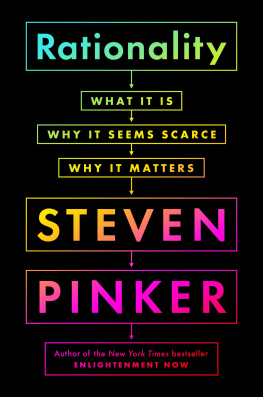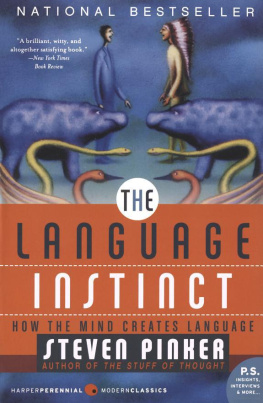Routledge Revivals
The Idea of Welfare
Originally published in 1979, The Idea of Welfare critically reviews the concepts of egoism and altruism as they are expressed in residual and intuitional models of social welfare. The book describes the way in which the scope and limits of obligation and entitlement are determined in practice by the interplay of familial, communal, national and international loyalties. It also looks at the similarities and differences between economic and social forms of exchange and mutual aid. These major themes are developed in a comparative review, which explores the effects of social change on the ways in which people seek to preserve and enhance their welfare through self-help and collective action. The book focuses on Britain, the USA and Russia, it challenges conventional definitions of welfare, largely concerned with formal social policies sponsored by government and uses historical material to illustrate the dominant forms of a mutual aid which were practised before the development of modern welfare states.
First published in 1979
by Heinemann Educational Books Ltd
This edition first published in 2018 by Routledge
2 Park Square, Milton Park, Abingdon, Oxon, OX14 4RN
and by Routledge
711 Third Avenue, New York, NY 10017
Routledge is an imprint of the Taylor & Francis Group, an informa business
1979 Robert Pinker
2019 Robert Pinker, introduction John Offer
All rights reserved. No part of this book may be reprinted or reproduced or utilised in any form or by any electronic, mechanical, or other means, now known or hereafter invented, including photocopying and recording, or in any information storage or retrieval system, without permission in writing from the publishers.
Publishers Note
The publisher has gone to great lengths to ensure the quality of this reprint but points out that some imperfections in the original copies may be apparent.
Disclaimer
The publisher has made every effort to trace copyright holders and welcomes correspondence from those they have been unable to contact.
A Library of Congress record exists under LCCN: 79670318
ISBN 13: 978-0-367-17762-1 (hbk)
ISBN 13: 978-0-429-05758-8 (ebk)
ISBN 13: 978-0-367-17764-5 (pbk)
The Idea of Welfare
The Idea of Welfare
Robert Pinker
Professor of Social Work Studies,
London School of Economics and Political Science
Heinemann Educational Books Ltd
22 Bedford Square, London WC1B 3HH
LONDON EDINBURGH MELBOURNE AUCKLAND
HONGKONG SINGAPORE KUALA LUMPUR NEW DELHI
IBADAN LUSAKA NAIROBI JOHANNESBURG
EXETER (NH) KINGSTON PORT OF SPAIN
British Library Cataloguing in Publication Data
Pinker, Robert
The idea of welfare. (Studies in social policy and welfare; 9).
1. Social service2. Public welfare
I. TitleII. Series
361HV40
ISBN 0 435 82683 2 Cased
ISBN 0 435 82684 0 Paperback
Robert Pinker 1979
First Published 1979
Typeset by The Castlefield Press of High Wycombe in 10/11 pt Century, and printed in Great Britain by Richard Clay (The Chaucer Press) Ltd, Bungay Suffolk
Economic and political ideologies and The Idea of Welfare
One of the several themes of enquiry I pursued in writing The Idea of Welfare was the ways in which the advocates of three great welfare ideologies have sought to dominate and shape the ends and means of social policies over the last two centuries. Classical political economists gave priority to the agencies of competitive market individualism in their commitment to the enhancement of social welfare. The advocates of Marxism and other forms of socialism gave absolute priority to statutory social services and the collectivist values of equality, fraternity and cooperation. Both of these social welfare models left some scope for voluntary sector services, while remaining essentially unitary in character and scope. In this Preface , I will also focus on the coverage I gave in The Idea of Welfare to the chequered history of a third major welfare ideology which I described as mercantile collectivism, the theory of which was developed in England in the early 1700s by Thomas Mun.
The impact that the ongoing debate between globalist freetraders and nationalist protectionists has had on these ideologies will also be reviewed. The recent growth in electoral support across the world for hard-right as well as hard-left populist movements suggests that something akin to the term mercantile individualism should be added to our political vocabulary.
In concluding his Introduction to this reprinting of The Idea of Welfare, John Offer cites the claim I made in 1979 that capitalism would go on developing in ways we are not able to anticipate or predict, (1979: 236). The subsequent events of the last forty years provide ample evidence that it was capable of doing so and in ways that took many of us by surprise.
In The Idea of Welfare, I discussed how the classical political economists of the late eighteenth century challenged and discredited the long established mercantilist doctrines that dated from the fifteenth century. Mercantilists gave over-riding priority to promoting the economic and political independence of the nation state, through the requisition of precious metals and the encouragement of population growth. While the classical political economists believed that free trade was the best way in which to enhance the nations welfare, mercantilists put their trust in protective tariffs, prohibiting emigration and enforcing repressive poor laws. Such policies required a very high degree of state involvement in supervising and directing both the economic and the social activities of their citizens.
In the late seventeenth century, however a new generation of mercantilist thinkers acknowledged the need to do something more positive with regard to raising the living standards of the poor. Nonetheless, effective and humane social policies failed to develop because the statutory authorities as well as their mercantilist advisors simply lacked the necessary economic and administrative expertise needed to implement any proactive social policies. They also lacked the revenues needed to fund such initiatives (1979: 7578).
The outlook for adequately funded and benevolent social policies did not improve until the late nineteenth century when those European nations which were belatedly beginning to industrialise did so under the shelter of protectionist economic policies. It was industrialisation that gave these countries a realistic prospect of economic growth, yielding access to the necessary revenues.
Germany, France, Russia and Italy were countries in which government was already far more extensively and deeply involved in economic policy than was the case in Britain. Free trade was a distinctively British doctrine and











